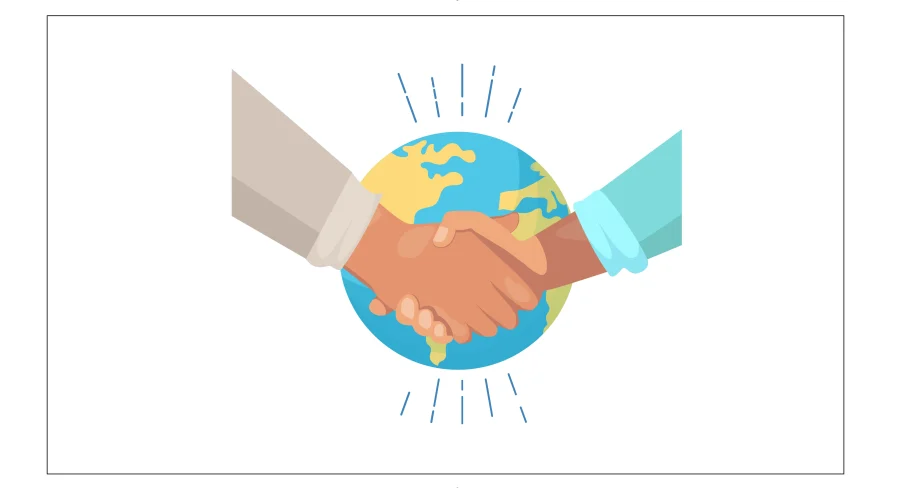Laiba Ijaz
AFTER the end of the World War 2 a decline in the number of wars and major conflicts between the states had been seen. The states began to prioritize non-traditional security measures. International organizations were created to foster collaboration. For instance, the UN plays a significant role in preventing conflicts from turning into war, in aiding in the restoration of peace if hostilities break out, and in fostering long-lasting peace in post-conflict communities. So, in the recent years there had been seen a shift of focus from traditional security to non-traditional security threats such as Climate change, Resource Scarcity, Food shortages. The States were focusing on these issues.
However, Conflicts did exist, nevertheless, albeit. But In 2022 the Russian invasion in Ukraine and the ongoing war between Israel and Palestine pose a danger to global security norms. Significant breaches of international humanitarian law and widespread crimes against human rights have occurred in recent years, and Those responsible feel more justified in their actions. While the interstate wars had been reduced intrastate armed conflict has drastically increased. Despite having such strong organizations, there are still two significant wars going on? Does creating more inclusive systems make sense? Or is multilateralism nearing its demise? Alternatively, there could be a change in the nature of security threats from non-traditional to traditional once again?
There has been significant loss as a result of these two wars. The invasion of Ukraine by Russia has increased the already record levels of displacement and humanitarian need worldwide. The Israel-Palestine conflict has since contributed to it. Roughly 274 million people globally were in urgent need of humanitarian aid in 2021—a 17% increase from the previous year. By 2023, that figure has been soar once again, bringing the number of people in need to 339 million, more than the population of the United States.
This means 1 in every 23 people on the planet will need emergency assistance just to survive. The source of these crises is nothing new: conflicts, both protracted and proliferating, and the increasingly dramatic effects of the climate emergency have intensified both the suffering of innocent civilians and the pressure on our multilateral system to deliver lifesaving support and solutions. These two ongoing wars have not only affected the region but the world as a whole. Every state is dealing with the fallout, which includes the sharp rise in energy and oil costs and many more.
To cope up with these challenges, It is essential that the global community and our multilateral system learn from the lessons of this year. A reframing effort of norms of international system is overdue. The world needs a legal instrument to aim at encouraging and supporting peace negotiations for the peaceful settlement of armed conflicts.251658240
First and foremost, the continuing war between Israel and Palestine needs to end. There can be an immediate end to hostilities. Then, a suitable resolution to this dispute ought to exist. The solution can be either one state and two state. According to the “one state solution,” Israeli Jews and Palestinian Arabs should live in a single state with equal rights for both groups. The ‘two state’ solution is the division of Israel and Palestine into two independent nations. The confederation may be an additional option. Consider Israel and Palestine to be similar to a smaller version of the European Union. Although each side would have its own administration, they would cooperate on matters pertaining to economics, security, and resources. Citizens on both sides could only vote in their own elections, but there would be unrestricted movement and even residency between the two states.
However, the Multilateral Peace Treaty aims to broaden the system’s acceptance and prevent future conflicts from escalating into war. The aim of this treaty is to establish an effective peace between the conflicting parties and devise a proper solution to the conflict to which the conflicting parties can agree upon. All state should be invited to a conference that the UN could call, and there may be a discussion about how to create more effective rules for the international system, such as how to stop existing disputes from escalating into global wars. And appropriate penalties would be applied to any state that violated these regulations.
Therefore, by improving our dispute resolution procedures and developing new guidelines we may prevent such problems from happening. These peace initiatives may just be the new beginning of a protracted conflict settlement process. Furthermore, rather than returning to more conventional security concerns, the states should concentrate on working together to develop stronger responses to non-traditional security risks like climate change, which is one of the biggest threat to global security.










